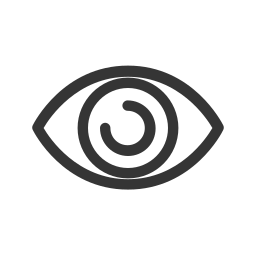
"Discover clear vision and expert care with our FAQs – from recommended eye exam frequencies to the safety of continuous contact lens wear, we're here to address all your optical concerns."
Comprehensive eye exam is important for detecting any eye problems at their early stages. The eyes are the only part of the body where arteries and veins can be viewed without having to perform surgery. Eyecare providers can see signs of stroke, diabetes, cardiovascular disease, brain tumors, multiple sclerosis and more, through an eye exam.
The doctor will not only determine if you require a prescription for eyeglasses, but they will also check your eyes for common eye diseases, assess how your eyes work together as a team and evaluate your eyes as indicators of your overall health.
You only have one set of precious eyes, and taking good care of them should be a top priority. The only way to do that is by visiting your eye doctor regularly. Even if you believe your eye health is excellent, preventative care can catch any issues before they escalate. That’s why it’s so important to talk to your ophthalmologist about how often you should schedule your eye examinations. The number of eye exams you need will likely change depending on age. As you get older, you’ll need more frequent eye exams.
Eye infections can be very serious and can have multiple causes that need to be treated in different ways. If you suspect you have an eye infection, call our office immediately for an appointment.
If your vision has changed in a sudden or dramatic way, there is a reason for it. While many of these reasons are benign, some reasons are sight-threatening. Please call us IMMEDIATELY, especially if you are experiencing any of the following: fogginess, veils, curtains, flashes of light or floaters.
It is generally recommended to have a comprehensive eye exam every two years for adults who are not experiencing vision problems. However, individuals with existing eye conditions or those over the age of 60 may need more frequent exams. Your optometrist will provide personalized recommendations based on your eye health and medical history.
While many people wear contact lenses safely and comfortably, it's essential to follow proper hygiene and care guidelines. Extended wear lenses are designed for continuous use, but it's crucial to consult with your optometrist to determine the most suitable option for your eyes. Regular check-ups are necessary to monitor eye health and address any issues that may arise.
Optometrists and ophthalmologists are both eye care professionals, but they have different focuses. Optometrists primarily provide vision care, including eye exams, prescribing glasses and contact lenses, and managing common eye conditions. Ophthalmologists, on the other hand, are medical doctors specializing in eye and vision care, performing surgeries, treating complex eye diseases, and providing comprehensive medical eye care.
Yes, our optometrists are experienced in providing eye care for patients of all ages, including children. Early detection of vision problems in children is crucial for their overall development. We offer comprehensive pediatric eye exams to assess visual acuity, eye health, and address any potential issues promptly.
Absolutely. Our optometrists are skilled in fitting contact lenses to ensure comfort and optimal vision. Whether you're new to contacts or considering a switch, we offer a variety of lenses, including daily, weekly, and monthly options. During a contact lens fitting, we assess your eye health, measure your eyes, and provide guidance on proper lens care to ensure a safe and comfortable wearing experience.
© 2024 House Of Eyes . All Rights Reserved. || FAQ || Zocdoc Reviews
